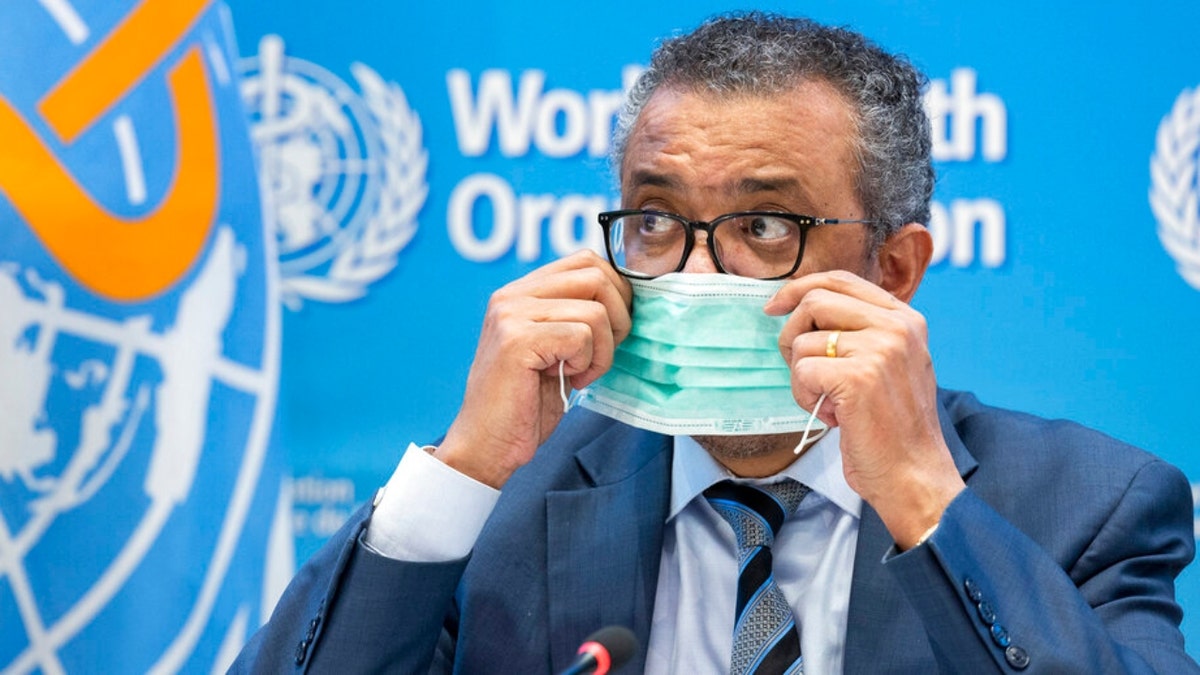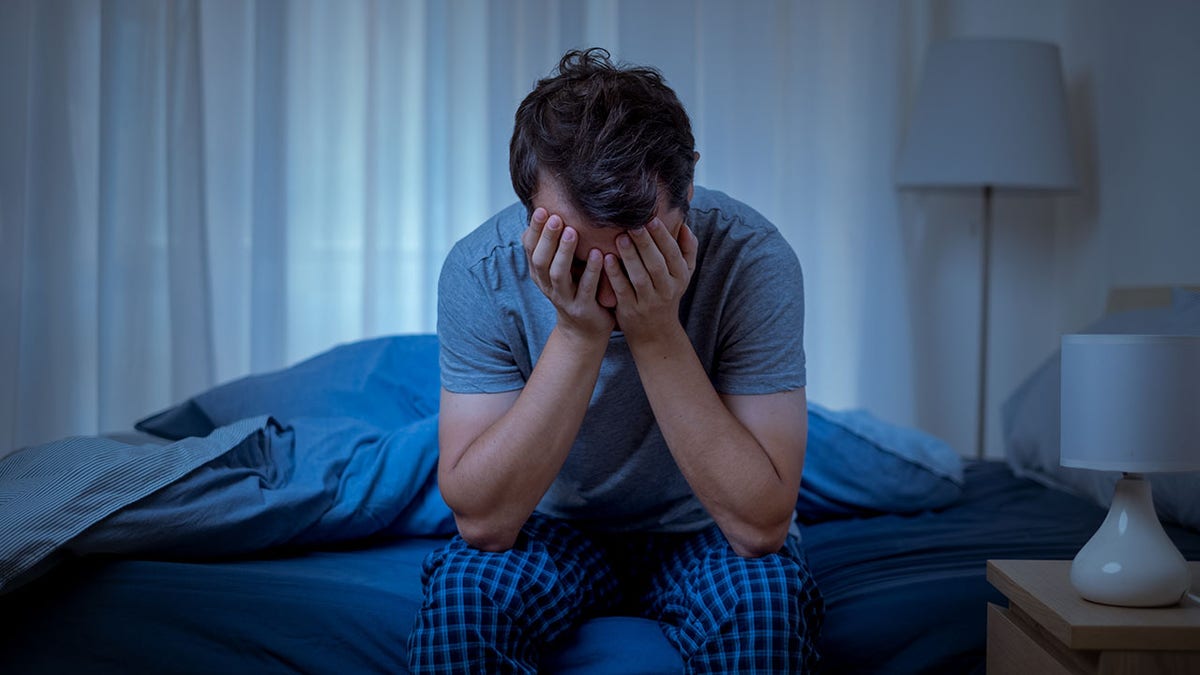America's Warrior Partnership on addressing mental health among America's veterans
Wounded marine staff sergeant John Jones describes the non-profit's efforts to prevent veteran suicide on 'Fox News @ Night.'
The World Health Organization (WHO) recently released its most comprehensive review of the world's mental health in over 20 years with an action plan that every WHO state member has signed to transform mental health care, according to a recent press release.
"Everyone’s life touches someone with a mental health condition. Good mental health translates to good physical health and this new report makes a compelling case for change," said WHO Director-General Dr. Tedros Adhanom Ghebreyesus.

FILE - Tedros Adhanom Ghebreyesus, Director General of the World Health Organization (WHO), removes his protective face mask prior to speaking to the media at the World Health Organization (WHO) headquarters in Geneva, Switzerland, on Dec. 20, 2021. ""Everyone’s life touches someone with a mental health condition. Good mental health translates to good physical health and this new report makes a compelling case for change," ((Salvatore Di Nolfi/Keystone via AP, File))
"The inextricable links between mental health and public health, human rights and socioeconomic development mean that transforming policy and practice in mental health can deliver real, substantive benefits for individuals, communities and countries everywhere. Investment into mental health is an investment into a better life and future for all."
Approximately 1 billion people, including 14% adolescents globally, lived with a mental health disorder in 2019.
HOW TO COPE WITH 'COLLECTIVE GRIEF' WHEN MASS TRAGEDY STRIKES
Mental health disorders are the top cause of disability, with those with severe mental health conditions dying 10 to 20 years earlier on average compared to the general population mostly because of physical diseases that are preventable.
And the COVID-19 pandemic exacerbated certain mental health conditions, with depression and anxiety increasing more than 25% during its first year alone.
Sexual abuse and bullying are two main causes of childhood depression.

Depressed man at night feeling alone and useless. The COVID-19 pandemic exacerbated certain mental health conditions, with depression and anxiety increasing more than 25% during its first year alone. (iStock)
But many people with depression are not receiving treatment.
Approximately one third of high-income people with depression receive formal mental health care, but "minimally-adequate treatment" is estimated for only 3% in low and lower-middle-income countries.
Suicide accounted for more than 1% of deaths, with more than half occurring before age 50, but "20 countries still criminalize attempted suicide."
"Across countries, it is the poorest and most disadvantaged in society who are at greatest risk of mental ill-health and who are also the least likely to receive adequate services," the release said.
Although there has been some progress in mental health care, the WHO hopes to accelerate the change, noting two out of three dollars of scarce government spending on mental health is allocated to inpatient psychiatric hospitals rather than community programs, which are most beneficial for people.
MONKEYPOX AND ENDEMIC DISEASES BECOMING MORE PERSISTENT, WHO SAYS

Getting outside is important for your mental health. Although there has been some progress in mental health care, the WHO hopes to accelerate the change. (iStock)
The WHO provided three broad recommendations to improve mental health, including calling on governments, individuals and communities to strengthen "the value and commitment" to mental health and its care as well as to change "the physical, social and economic characteristics of environments" that impact mental health.
CLICK HERE TO DOWNLOAD THE FOX NEWS APP
"Every country has ample opportunity to make meaningful progress towards better mental health for its population," said Dévora Kestel, director of WHO’s Mental Health and Substance Use Department.
"Whether developing stronger mental health policies and laws, covering mental health in insurance schemes, developing or strengthening community mental health services or integrating mental health into general health care, schools, and prisons, the many examples in this report show that the strategic changes can make a big difference."









































